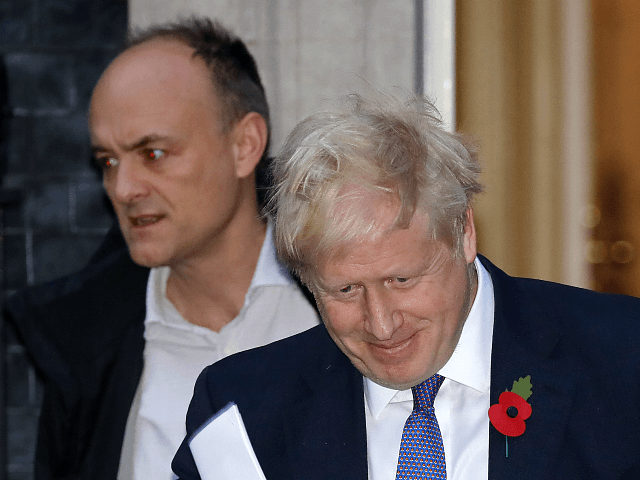Boris Johnson has written to Donald Tusk, President of the European Council, to formally accept a third Brexit delay, and to beg the bloc not to delay it again next year.
“As you are well aware, I have no discretion under the UK’s European Union (Withdrawal) (No. 2) Act, which was imposed on this Government against its will, to do anything other than confirm the UK’s formal agreement to this extension,” Johnson wrote bitterly, in reference to the “Surrender Act” which anti-Brexit MPs rammed through the Houses of Parliament to force the British prime minister to ask for a three-month Brexit delay — but which he did not quite resist to the full, having failed to advise the Queen against withholding the Royal Assent from it, as was his right.
“I must make clear my view that this unwanted prolongation of the UK’s membership of the EU is damaging to our democracy and to the relationship between us and our European friends,” he added, echoing the sentiments he expressed in an earlier letter urging the EU not to agree to the delay in the first place — which the EU ignored.
“I would have much preferred it if the UK Parliament could have proceeded rapidly to ratify the deal we reached between us,” he continued despairingly.
“Unfortunately I very much fear that this Parliament will never do so as long as it has the option of further delay. That is why I am seeking a General Election in December,” he added.
“But, in case Parliament resists this too, I would also urge EU Member States to make clear that a further extension after 31 January is not possible,” he begged.
“This is plenty of time to ratify our deal. It will avoid this Parliament simply extending our membership again and again, distracting from the good conduct of the business of the European Union, and corroding public trust in politics in the UK,” he concluded.
However, Johnson’s letter offers little practical incentive for the EU — which would rather like to keep hold of the United Kingdom, its rich fishing waters, and its exorbitant contributions to the EU budget — to comply, assuring the bloc that “we will of course not seek to deliberately disrupt the EU’s business”.
This seems a strange concession to make to the bloc after it sabotaged his plans to deliver Brexit on October 31st, given a promise to use Britain’s veto power etc. as an EU member to “disrupt the EU’s business” is one of the few ways he might be able to them to deliver the clean break his own country’s MPs will not agree to.
The British people voted to Leave the European Union well over three years ago in June 2016.
